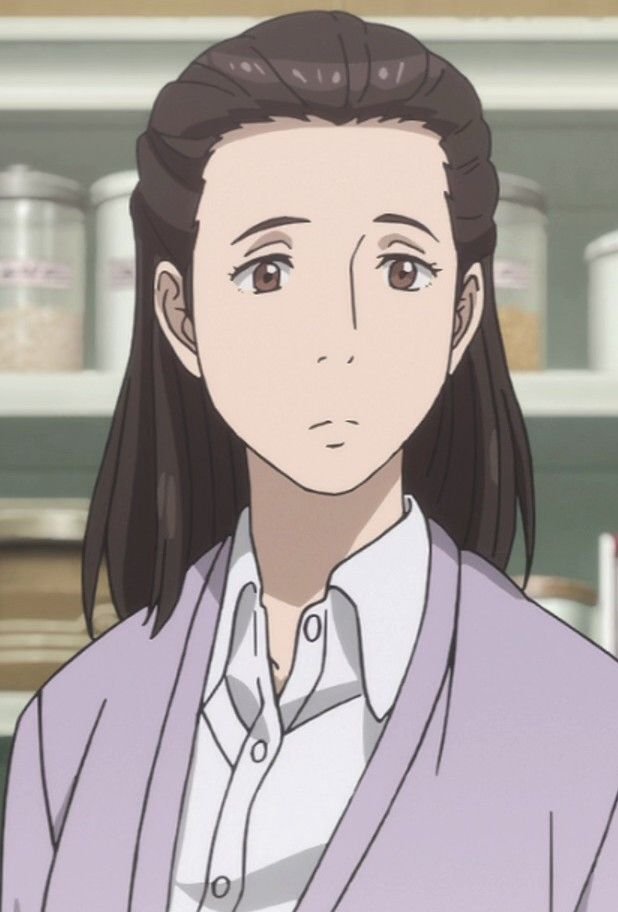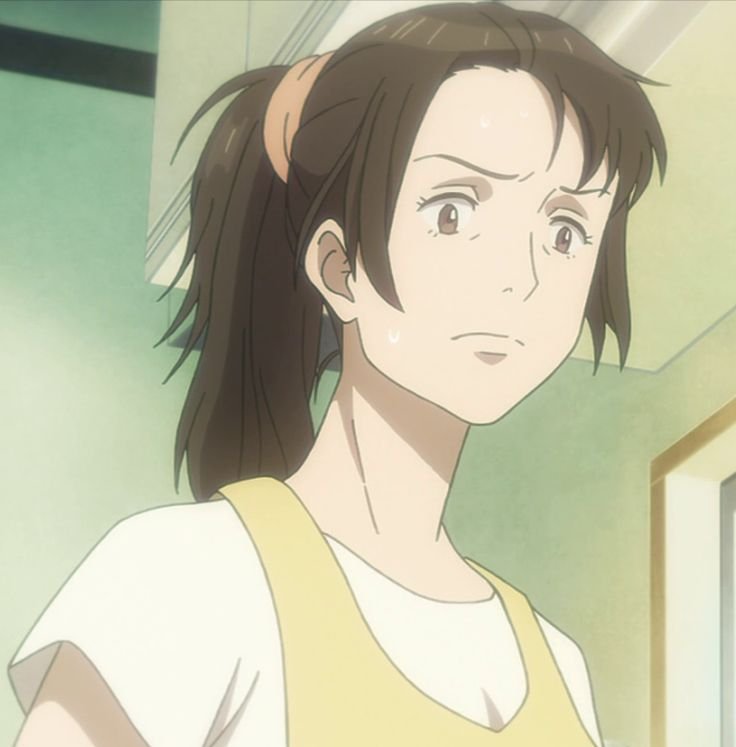

Nobuko Izumi

|
泉信子
|
|
|---|---|
| Personal Description | |
| Nihongo | 泉信子 |
| Vital Information | |
| Gender | Female |
| Age | 40 |
| Hair Color | Brown |
| Eye Color | Brown |
| Occupation | Housewife |
| First Appearance | |
| Manga Debut | Episode 1 |
| Anime Debut | Chapter 1 |
| Japanese Voice | Chieko Sasai |
| English Voice | Allison Sumrall |
- Role: Supporting character inParasyte
- Relation: Wife of Kazuyuki Izumi and mother of Shinichi Izumi
|
Émile Durkheim
|
|
|---|---|
| Born |
David Émile Durkheim
15 April 1858 Épinal, France
|
| Died | 15 November 1917(aged 59)
Paris,France
|
| Nationality | French |
| Alma mater | École Normale Supérieure |
| Known for | Sacred–profane dichotomy Collective consciousness Social fact Social integration Anomie Collective effervescence |
| Scientific career | |
| Fields | Philosophy, sociology, education, anthropology, religious studies |
| Institutions | University of Paris, University of Bordeaux |
| Influences | Immanuel Kant, René Descartes,Plato, Herbert Spencer,Aristotle, Montesquieu, Jean-Jacques Rousseau, Auguste Comte. William James, John Dewey, Fustel de Coulanges, Jean-Marie Guyau, Charles Bernard Renouvier, John Stuart Mill |
| Influenced | Marcel Mauss,Claude Lévi-Strauss, Talcott Parsons, Maurice Halbwachs, Jonathan Haidt, Lucien Lévy-Bruhl,Bronisław Malinowski, Fernand Braudel, Pierre Bourdieu, Charles Taylor, Henri Bergson, Emmanuel Levinas, Steven Lukes, Alfred Radcliffe-Brown, E. E. Evans-Pritchard, Mary Douglas, Paul Fauconnet, Robert N. Bellah, Ziya Gökalp, David Bloor, Randall Collins, Neil Smelser[1] |
Personality and Characteristics
Nobuko Izumi is Shinichi Izumi’s mother and a significant figure in his life before the arrival of the parasites. She represents warmth, stability, and normalcy, providing a secure family environment for Shinichi. Nobuko’s nurturing nature and close relationship with her son make her a central part of his world, and her loving demeanor further emphasizes the emotional foundation of Shinichi’s character before his encounters with the parasites.
Kana has a unique sensitivity to detecting certain types of energy—she can sense the presence of parasites to a degree, though not with the accuracy that Shinichi and Migi possess. This latent ability, however, becomes both a gift and a dangerous vulnerability, as her attraction to Shinichi and her intuitive pull toward parasites eventually place her in harm’s way.

With worry etched across her face, Nobuko Izumi’s fearful expression reveals the deep concern and vulnerability that come with protecting those she loves in a world filled with hidden threats.
Tragic Transformation
Nobuko’s life takes a devastating turn when a parasite targets her. She is fatally attacked, decapitated, and her body is taken over by the parasite, which needed a host to survive. The parasite occupies her headless body, creating a deeply disturbing situation for Shinichi when he realizes that his mother’s body has been inhabited by a parasitic being with no trace of her original personality.
When Shinichi encounters her again, he is forced to confront the horrifying reality that his mother is gone and that the figure before him is merely her body animated by the parasite. This traumatic experience becomes a pivotal moment in Shinichi’s life, marking his complete awareness of the parasitic threat and intensifying his resolve to protect others from such horrors.
Emotional Impact on Shinichi
Nobuko’s death and transformation leave an immense emotional scar on Shinichi. This tragedy shatters his sense of safety and thrusts him into a complex struggle with his humanity, as he grapples with grief, anger, and the growing realization of his own limitations. Her death also plays a crucial role in his evolving relationship with Migi, his own parasitic companion, as he is forced to confront the complexities and potential dangers of coexisting with a parasite. Shinichi’s sorrow and rage over losing his mother catalyze his journey into a darker, more determined individual willing to take on the parasitic threat head-on.
Legacy and Themes
Nobuko’s fate emphasizes several core themes in Parasyte, including the fragility of human life and the existential horror of losing one’s loved ones to forces beyond human control. Her tragic death underlines the dangers parasites pose to humanity, marking a transition for Shinichi from an ordinary teenager to someone with a deeply personal stake in combating the parasitic invasion. Her memory remains a powerful influence on Shinichi, symbolizing the innocent lives he fights to protect and serving as a constant reminder of the personal losses that drive him forward in his battle.
Through Nobuko’s character, Parasyte explores the profound impact of loss and the psychological struggle of reconciling the familiar with the grotesque, as Shinichi faces the haunting truth that sometimes the grea threats lie within those closest to us.